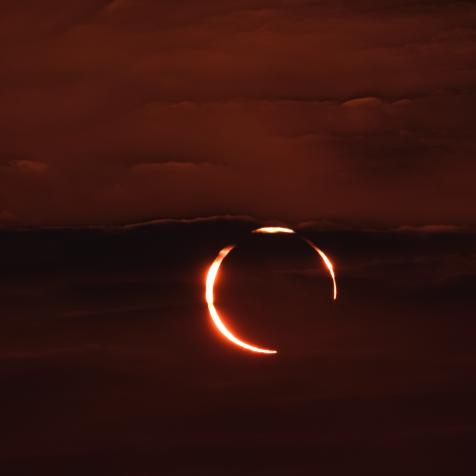
Getty Images
What's the Difference Between a Fact, a Hypothesis, a Theory, and a Law in Science?
Each word has a specific meaning and not interchangeable.
You may have heard someone disparage evolution because it's "just a theory." Gravity, on the other hand, must be 100 percent real — it's a "law," after all. It's so thoroughly proven, you might even call it a "scientific fact." Unfortunately, all of these common impressions aren't quite right. The words "fact," "hypothesis," "theory," and "law" have very specific meanings in the world of science, and they don't exactly match the ones we use in everyday language.

Getty Images/Witthaya Prasongsin
Fact
"When you drop a pencil, it falls to the ground."
This one is pretty straightforward, but it's got a big caveat. In science, a fact is an observation that's been confirmed so many times that scientists can, for all intents and purposes, accept it as "true." But everything in science comes with a level of uncertainty, so nothing is ever scientifically "true" beyond a shadow of a doubt. You could say that "all swans are white" is a fact, but there's always the chance you could see a black swan and throw that fact out the window. Likewise, you could say it's a fact that every time you let go of a pencil, it will drop to the floor, but science leaves room for the vanishingly, infinitesimally small chance that it might not.
Hypothesis
"A pencil drops because there's a force pulling it down."
A hypothesis is a tentative explanation about an observation that can be tested. It's just a starting point for further investigation. Any one observation usually comes with an array of hypotheses. If you observe that a swan is white, your hypothesis could be that it's painted, or it was bleached by the sun, or its feathers just lack pigment. You can then investigate all of those hypotheses and come away with the one that's most supported by the evidence, if any.
Throughout history, there have been many hypotheses about why things fall when you drop them. Aristotle believed it was because material objects had a tendency to fall toward the center of the universe, which the ancient Greeks believed was Earth. Newton reasoned that all Earth-bound objects must be attracted to Earth, but also, all planets must also be attracted to other planets, and so on with every object in the universe. His hypothesis was that this all happened through a force of attraction that he called gravity.
Law
"Any particle of matter in the universe attracts any other with a force varying directly as the product of the masses and inversely as the square of the distance between them."
You might expect "theory" to be the next natural step in this path to scientific truth (and to be fair, we did kind of prime you for that with the headline), but you'd be wrong. That's not to say a law is inferior to a theory; it's just a different thing altogether. In science, a law is a detailed description of how some aspect of the natural world behaves, usually involving math. Newton's law of universal gravitation, as quoted above, describes the way matter behaves with impressive precision. It makes it easy to predict how a moon will act if it's very big and close to its planet versus very small and far away. But how is all it describes — it doesn't explain why.
Theory
"Mass and energy cause spacetime to curve, and the force of gravity arises from the curvature of spacetime."
A theory is an explanation of some aspect of the natural world that's well-substantiated by facts, tested hypotheses, and laws. Quoted above is a simplified version of Einstein's general theory of relativity. Newton said that two objects attract based on how massive they are and the distance between them; Einstein said this happens because the mass of each object literally distorts the fabric of the universe, and the greater the mass, the greater the distortion.
A theory is the granddaddy of all scientific statements, which is why it makes no sense to say that evolution is "just a theory." As Joe Hanson puts it in his video for It's Okay to Be Smart, "Stop saying it like a bad thing. Calling it a theory means it's passed the toughest tests that we can throw at it, and evolution has been tested maybe more than any theory that we know of."
But as we said, science never says anything with 100 percent certainty. Einstein's theory breaks down when you apply it to quantum mechanics, which deals with the behavior of tiny subatomic particles. As a result, many scientists are throwing new hypotheses about gravity into the ring. But that doesn't mean Einstein was wrong. General relativity explains the vast majority of our observations, and every time scientists have tried to prove it wrong, they've failed. That's the strength of a scientific theory: It's built on a sturdy enough foundation that even if you find a few cracks in it, you can trust that the structure as a whole will remain standing.
This article first appeared on Curiosity.com.


















